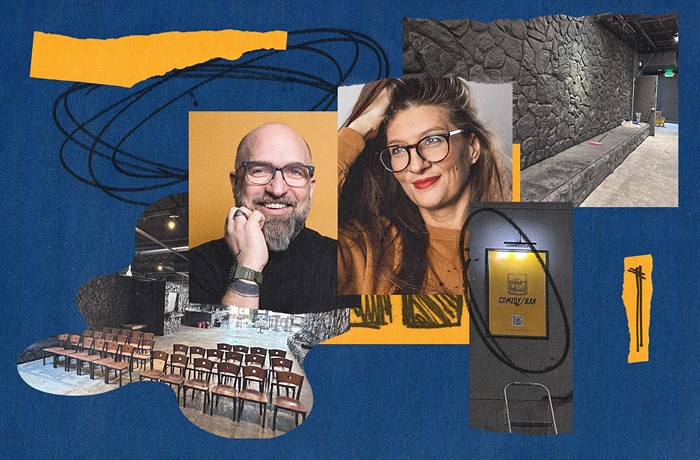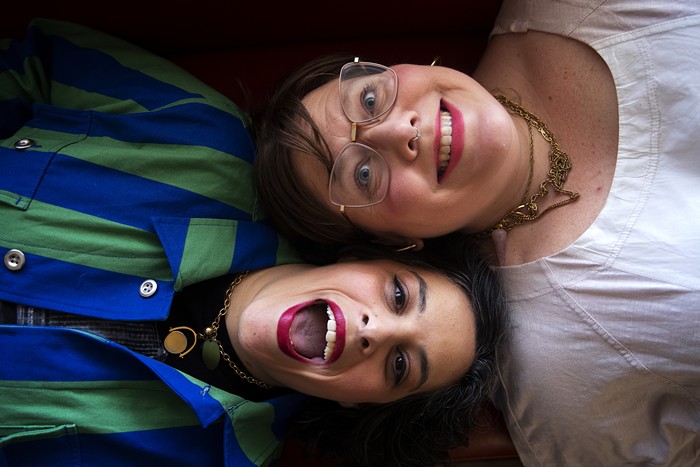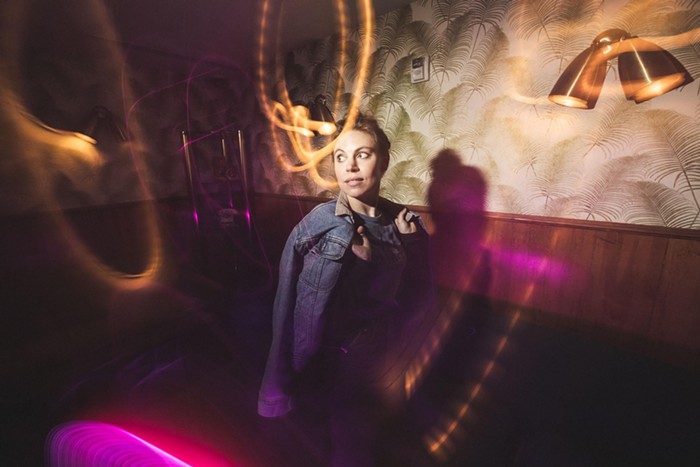
In a sea of white-guy-does-stand-up shows, Rhea Butcher and Cameron Esposito’s SeeSo series Take My Wife has been a welcome deviation—and the best depiction of gender in comedy I’ve ever seen. For the comedy power couple, that’s by design.
“Rhea and I had the chance to design our show so that it reflects our real life,” says Esposito. “Because we were writing a show that centered on two characters who were both women and both queer, we felt that there was enough diversity between just different women’s experiences.”
So Butcher and Esposito, who perform together at Revolution Hall this week, committed to filling their writers’ room with women—only women. In season two, 43 percent of those writers were also women of color.
“Essentially, we were making a workplace comedy,” says Butcher. “We were hiring women because they have experiences in that workplace.”
The show’s depiction of that workplace is sharp and accurate—both a highly specific glimpse into Butcher and Esposito’s real lives, and an examination of what it’s like to be a woman comic in an industry that’s historically privileged men. Take My Wife keeps things relatively light—it’s never a downer to watch—but it also doesn’t ignore reality. One of the best episodes of season one shut down the bad-faith debate over rape jokes by cleverly skewering a male comic who tells an unfunny joke about sexual assault on Butcher and Esposito’s show, prompting several women to hide out in the bathroom for the rest of his set. The problem isn’t that he told a joke that mentioned rape. It’s that he couldn’t read the room and did it thoughtlessly.
“As comics, of course, no topics are off-limits, but certain approaches are not great,” explains Esposito. “It’s about the joke, so make a better joke.”
With SeeSo slated to cease operations later this year, the future of Take My Wife is uncertain. That’s a shame—not just because it’s a great show about gender and comedy, but because it’s one of the best shows out there, full stop. Women frequently are tasked with identifying with men in order to watch any number of TV shows. But for one season, it was such a treat to watch a show that didn’t ask us to make that particular leap, but instead proudly centered on the experiences of women, queer folks, and people of color. Esposito and Butcher couldn’t comment substantively on the future of their show, but regardless of whether it’s picked up elsewhere, one thing is clear: They’ve already shown that comedy can be as inclusive as you’re willing to make it.
















